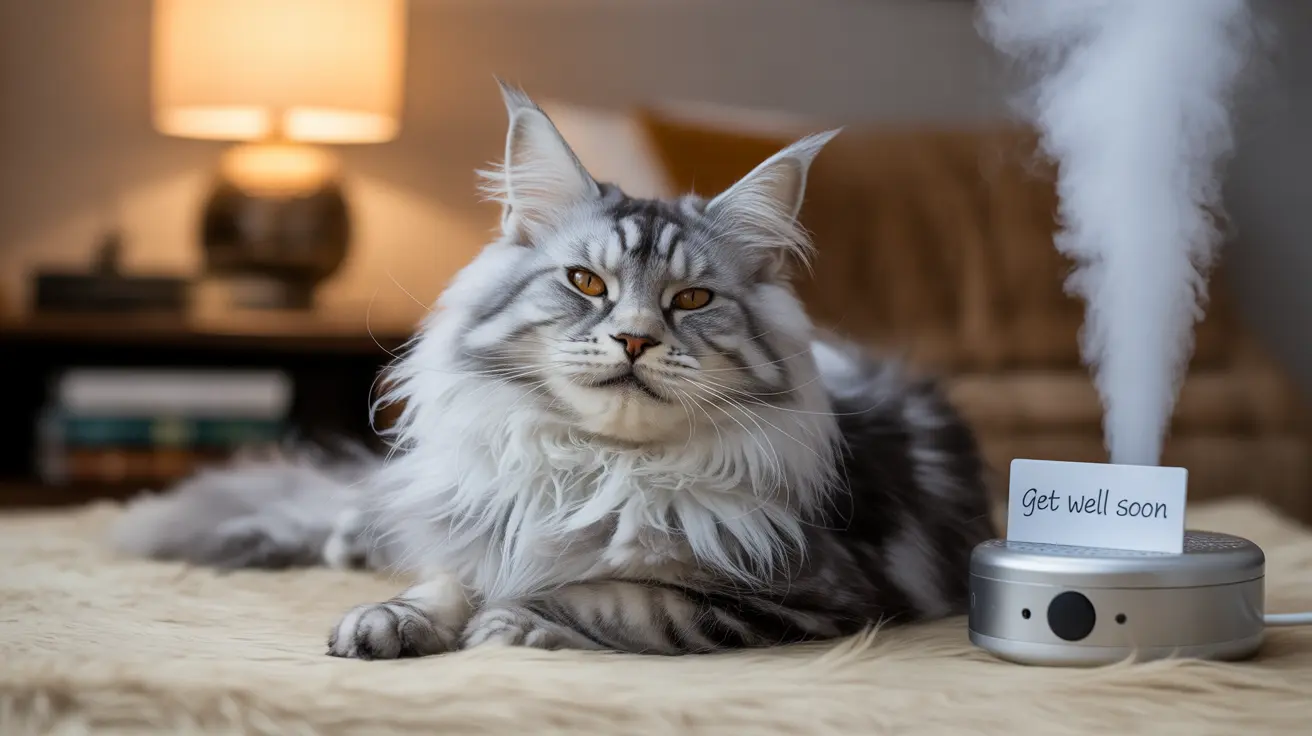Understanding Kennel Cough in Cats
Kennel cough in cats, primarily caused by the Bordetella bronchiseptica bacterium, is a respiratory infection that can spread quickly among cats in close quarters. The condition typically causes mild to moderate symptoms, including:
- Persistent dry cough
- Sneezing and nasal discharge
- Mild fever
- Decreased appetite
- Lethargy
- Difficulty breathing in severe cases
Essential Home Care Treatments
Create a Recovery Environment
The first step in treating kennel cough at home is establishing a quiet, comfortable recovery space. Keep your sick cat isolated from other pets to prevent spread of infection and ensure they have a stress-free environment to rest and recover.
Humidity and Hydration
Proper humidity levels can significantly ease your cat's respiratory symptoms:
- Use a cool-mist humidifier in your cat's room
- Create a steam treatment by running a hot shower
- Ensure fresh water is always available
- Consider pet fountains to encourage drinking
Supporting Your Cat's Immune System
Boost your cat's natural defenses with these strategies:
- Provide high-quality, easily digestible food
- Keep food and water dishes clean
- Maintain consistent room temperature
- Ensure adequate rest by minimizing disturbances
Natural Remedies and Supplements
Several natural remedies may help ease symptoms when used appropriately:
- Small amounts of pure honey (for soothing throat irritation)
- Veterinary-approved immune support supplements
- L-lysine supplements (consult your vet first)
- Vitamin C-rich foods (in appropriate amounts)
When to Seek Veterinary Care
While many cases of kennel cough can be managed at home, certain symptoms require immediate veterinary attention:
- Severe or worsening cough
- Difficulty breathing or rapid breathing
- Complete loss of appetite
- High fever
- Lethargy or depression
- Bluish gums or tongue
Prevention Strategies
To minimize the risk of future infections:
- Consider the Bordetella vaccine for high-risk cats
- Maintain good household hygiene
- Clean and disinfect pet areas regularly
- Avoid exposure to sick animals
- Keep your cat's immune system strong through proper nutrition
Frequently Asked Questions
How can I treat kennel cough in my cat at home safely and effectively?
Focus on providing a quiet, humid environment, ensuring proper hydration, and maintaining good nutrition. Use a humidifier, offer fresh water frequently, and keep your cat isolated from other pets while recovering.
What are the common symptoms of kennel cough in cats that I should watch for?
Common symptoms include a persistent dry cough, sneezing, nasal discharge, mild fever, reduced appetite, and lethargy. Some cats may also experience difficulty breathing in more severe cases.
When should I take my cat to the vet if it has kennel cough symptoms?
Seek veterinary care if your cat shows severe symptoms such as difficulty breathing, high fever, complete loss of appetite, or if symptoms worsen or persist beyond a week. Immediate attention is needed if you notice blue-tinted gums or extreme lethargy.
Are there natural remedies or home care tips to help my cat recover from kennel cough?
Yes, natural remedies like honey (in small amounts), steam therapy, and maintaining proper humidity can help. Always consult your vet before trying any natural remedies, as some may not be safe for cats.
Can kennel cough be prevented in cats, and is the Bordetella vaccine recommended?
While the Bordetella vaccine is available for cats, it's typically recommended only for those at high risk (cats in shelters or frequent boarders). Prevention focuses more on good hygiene, avoiding exposure to sick animals, and maintaining a strong immune system through proper nutrition.






